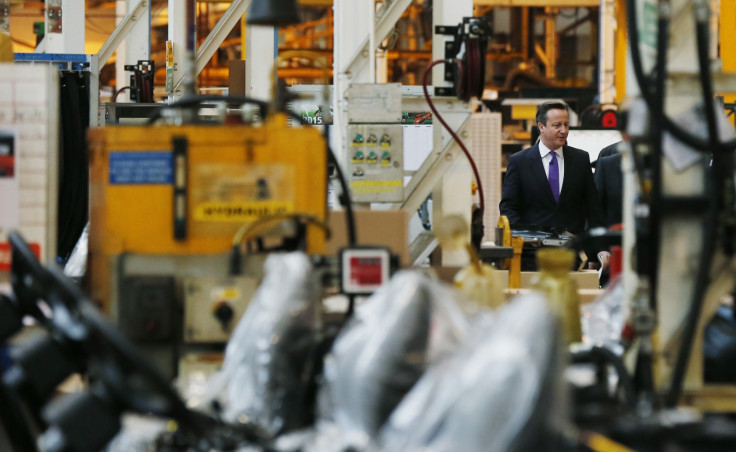General election 2015: Can David Cameron fulfil his 'full employment' pledge?

Prime Minister David Cameron is shouting loud and proud about the economy and, as the general election looms, he has promised a Tory government would commit to "full employment" in the UK.
The bullish Conservative leader wants Britain, with an employment rate of 72%, to beat Germany's 74% and become the jobs factory of Europe.
But Professor Geraint Johnes, director of Lancaster University's Work Foundation, said Cameron's definition of "full employment" is strange.
He told IBTimes UK full employment usually is taken to mean a level of unemployment at which, if you fall below it, then you will trigger a cycle of wage and price inflation.
"Many commentators would say that the level of unemployment is around about 6%, but at the moment 4% is nearer the mark because we've got a considerable amount of underemployment, with people working part-time who would rather work full-time," Johnes explained.
"That means that there is more slack in the economy that you would usually get when the unemployment rate is 6%."
He added: "There's a lot of uncertainty about what the rate of unemployment would be at full employment but my best guess would be that it's around 4%."
Johnes also said there is no reason why the prime minister, under his employment driven definition, should not achieve his target.
He said: "We've had big increases in employment recently, during the recovery, and we are quite close to the German employment rate. It's a strange definition of full employment, though."
A Dorian Gray economy?
John Philpott, a labour market analyst, is more sceptical. He blasted Cameron's target as "superficial" and part of the UK's "Dorian Gray economy".
The economist acknowledged the employment level will likely reach a new record high of more than 73.5% at some point in 2015 but "would not consider this as anything more than a partial step toward full-employment".
He said: "Even a new record high employment rate would at present occur in a labour market characterised by a relatively high rate of underemployment, a still high youth unemployment rate, an unemployment pool with more than one in three people long-term unemployed, around two million economically inactive people expressing a desire for work, and a large segment of the workforce employed in low productivity jobs paid at or close to the National Minimum Wage (NMW).
"This does not constitute a state of 'full employment' in any genuine sense of the concept."
He added: "On the contrary, what we currently have is a labour intensive UK economy with endemically slow growth in both productivity and pay combined with deeply ingrained pay inequality.
"This is in other words a Dorian Gray economy, the admired façade of seemingly approaching full employment hiding a far from perfect reality. In an economy where poverty pay and use of zero-hours contracts is rife, talk of 'full employment' rings hollow."
© Copyright IBTimes 2025. All rights reserved.





















